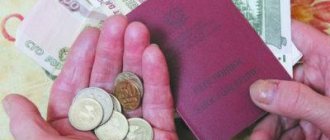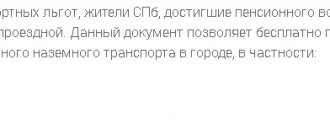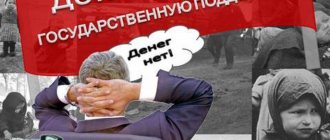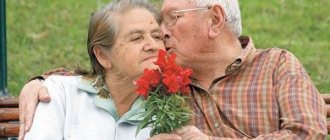Support Features
There is no single law on the basis of which large families would receive assistance from the state. However, this issue is currently under consideration. Speaker of the Federation Council Valentina Matvienko noted at the beginning of 2020 the importance of adopting such a law. It will allow:
- unify the measures provided;
- make it easier for subsidy recipients to find information about their rights and benefits.
Ideally, it is planned to collect all federal preferences in one regulatory act. But in addition, regions will retain the right to use their fertility support measures for families with 3 or more children.
Who can receive
The problem of unifying the measures provided also lies in the fact that the concept of a large family from region to region can be interpreted somewhat differently. This usually concerns the number of children. In the constituent entities of the Russian Federation, where the demographic issue is not so acute, the number of minors may be more than 3.
In the generally accepted form, a large family is considered to be a family in which there are at least 3 children, all of whom must be minors. When the number of children under the age of 18 becomes less than 3, the status is lost, as is the right to receive benefits (for full-time education, the age increases to 23 years).
Satisfying the parameters set by the local administration is not the only requirement. It is important to formalize the status of a large family. This happens in social security agencies. One of the parents (mother or father - who collected the documents) is issued a certificate for a large family with its own serial number and description of the family members (children). The validity period is also indicated there (can be extended for a number of reasons).
Benefits at the federal level for families with many children.
Federal benefits for the birth of a third child provide for the possibility of enrollment in educational institutions without a waiting list (including schools, kindergartens, and additional education institutions).
Obtaining a plot of land, providing free vouchers to health centers.
In most regions, a third child allows you to obtain the status of a large family.
Mothers in this category can receive an old-age pension 5 years earlier than other women who do not have benefits.
In labor legislation, parents with three children are entitled to the following benefits:
- providing vacation at any convenient time during the year, regardless of the vacation schedule;
- additional days of rest without pay up to 14 days;
- Possibility to work part-time or weekly;
- additional pension points for being on parental leave.
Federal benefits are determined by Presidential Decree No. 431 of May 5, 1992, Law No. 81-FZ of May 19, 1995.
The document specifies such concessions as:
- provision of free medicines for children under 6 years of age;
- discount when paying for housing and communal services;
- provision of free meals in general education and secondary vocational institutions;
- priority allocation of plots for summer cottages and vegetable gardens;
- provision of preferential loans, etc.
Families with three children can qualify for priority enrollment in kindergartens.
At the regional level, compensation for payment for childcare and supervision is provided. In some regions of the Russian Federation it is up to 100%.
Application for obtaining a certificate for families with many children. [15.43 KB]
Forms of support
For large families, several forms of support are provided. They are usually divided into federal and regional. The former are used everywhere, while others are provided only in certain regions in accordance with local regulations. All benefits can be divided into several groups:
- material;
- housing and communal services;
- medical and social;
- labor
Moreover, the set of measures for citizens may vary from region to region. Other factors may affect eligibility. For example, it may be necessary to meet special conditions, confirm the need for financial support or provide a specific type of assistance.
Cash payments
The birth of a third child is accompanied by the receipt of certain financial income from the state or region of residence. Regardless of the subject of the Russian Federation, women who give birth to a third child receive:
- lump sum benefit at birth - from February 1, 2020 is 18,004.12 rubles, additionally the amount can be indexed in a specific region;
- monthly allowance - the amount depends on the amount of earnings and the age of the child (the maximum amount is due until the child is 1.5 years old). Read more about childcare benefits for children up to 1.5 years old in 2020 in our article >>.
These payments are provided to large families even without confirmation of status. Additionally, they can apply for maternity capital in the amount of 466,617 rubles, if they have not taken advantage of this right before.
In 2020, children born after January 1, 2020 can receive another monthly payment, provided that the family income per person does not exceed 2 subsistence levels in the region.
Specifically, large families can receive additional payments. They consist of the following types of support:
- EDV. It is provided for the 3rd and subsequent children, paid until they turn 3 years old. The size of the payment is determined by the cost of living per child in the family’s region of residence. This support format is available to low-income families who have documented their social security status. The payment does not occur everywhere, but only in a little over 40 regions.
- Regional maternity capital for the 3rd child. Not provided everywhere. It can be provided in different forms: for the purchase of housing, construction of a house, purchase of land, a car and for other needs. The type of support needs to be looked at by specific region.
- Child benefit. It is paid until the child turns 16 years old. People with many children can also apply for this form of support, but they will have to defend their right in social security. The size is determined individually in regions, based on family category and other factors. This benefit may be paid once a month or quarter.
All together allows you to receive quite impressive financial support. But you will have to process the payments yourself and collect supporting documents for each.
What payments are due at the birth of a third child?
As with the birth of each previous newborn, parents have the right to receive the following compensation payments:
- lump sum benefit for the birth of a child;
- monthly child care allowance.
These types of payments are guaranteed and are established at the birth of each citizen.
In addition, a maternity capital certificate may be a benefit for families with 3 children if citizens did not participate in this program after the birth of the second minor.
Attention! At the regional or local level, one-time or monthly payments may be provided upon the birth of a third child.
Their composition must be clarified at the place of residence with social protection authorities or local administrations.
Housing and communal benefits
The housing issue is the most pressing topic for almost all categories of citizens. It is especially acute for families with a large number of children. The state immediately provides a set of possible support measures for them.
Housing certificates are not provided to families only with the status of large families. However, they can become participants in relevant programs for other reasons (young family, people in need). Specifically for large families, the following support measures are provided:
- Provision of land. A similar practice exists in many regions. The plot is granted to all family members upon the birth of their 3rd child. The subsidy is issued to local authorities involved in the distribution of land. A family living in a particular region for at least 5 years can apply for an allotment (in some regions of the Russian Federation this parameter can be reduced/increased). Additionally, local authorities can legally establish the categories of land available for transfer (for example, residential or for agriculture). Read more about the provision of land plots to large families in 2020 in our article >>.
- Preferential terms of mortgage lending. Those large families in which the third child was born no earlier than 2020 can apply for them. The subsidy itself consists of reducing the interest rate on an existing or newly issued housing mortgage to 6% per annum for the entire loan term. The difference between the basic and preferential rates is paid by the state from the federal budget. This allows you to significantly reduce the financial burden.
In the regions, families with many children are often provided with discounts on utility bills and the purchase of fuel for heating their homes. Local authorities usually compensate from 30 to 50% of the cost calculated according to the standards.
Are parents rewarded for having 5 or more children? What benefits does a mother of five children have?
In the Russian Federation, a mother of many children is considered to be a mother who supports three or more children under the age of 18. The state provides benefits, guarantees and financial assistance to large families. This is provided for by social legislation.
Today, mothers of many children have a whole list of benefits. Mothers of many children, in accordance with Article 15 of the Federal Law of May 19, 1995 N 81 “On State Benefits for Citizens with Children” dated May 19, 1995, receive a monthly allowance for the period of parental leave until the child reaches the age of one and a half years. The benefit is paid in the amount of the minimum wage established by federal law, regardless of the number of children being cared for.
Pension benefits for mothers of large families were first introduced by the USSR Law on State Pensions dated July 14, 1956. They were also adopted by the Russian law “On State Pensions in the Russian Federation” of November 20, 1990. Federal Law No. 173 of December 17, 2006 - Federal Law “On Labor Pensions in the Russian Federation,” which came into force on January 1, 2002, also retained the right to early assignment of an old-age labor pension to women who gave birth to five or more children and raised them until they reach the age of 8 years. They are granted a pension upon reaching the age of 50, if they have at least 15 years of insurance experience. If a mother of many children does not have the required insurance period, an old-age pension can be assigned to her on a general basis.
Women living in rural areas who have given birth to 5 or more children and raised them until the age of eight are entitled to an old-age pension upon reaching 50 years of age.
A mother of many children has the right to appeal to the employer with a request to establish a part-time working schedule for her, either 2.5 days a week or 2 days a week. This right is enshrined in Art. 93 of the Labor Code of the Russian Federation.
Mandatory part-time work is established at the request of one of the parents who has a child under the age of 14, but this will take into account production conditions and the need for the employee to be present at the workplace. Article 93 of the Labor Code of the Russian Federation does not contain restrictions on the possibility of providing an employee with a part-time working day in combination with a part-time working week (for example, 3 working days a week lasting 4 hours).
Article 263 of the Labor Code of the Russian Federation provides for the provision of unpaid leave to an employee who has two or more children under the age of fourteen. Annual additional leave without pay for up to 14 calendar days can be established by a collective agreement and provided to employees at a time convenient for them. The specified leave, upon the written application of the employee, can be added to the annual paid leave or used separately in full or in parts. Transferring this leave to the next working year is not allowed. But this rule will not work if the organization does not have a collective agreement.
Medical and social
Some of the support measures provided to large families are outlined in Decree of the President of the Russian Federation No. 431 of May 5, 1992. In particular, they relate to the following medical and social subsidies:
- receiving prescription medications for the treatment of young children (under 6 years old) without waiting in line or paying;
- free travel for schoolchildren in public city transport (if required, in suburban and regional transport);
- the right to enroll in kindergarten and school without waiting in line;
- support for schoolchildren in the form of free lunches, reimbursement of costs for the purchase of school and sports uniforms, and shoes.
In the regions, such children may also be provided with free trips to sanatoriums and camps if they have health conditions.
Link to document: “On measures for social support of large families”
Social benefits include benefits associated with farming. People with many children can be allocated their own land for this purpose and be provided with interest-free loans for the development of such a farm.
A pleasant surprise for children from large families is the distribution of gifts in honor of the New Year. For such kids, special matinees are held in different cities with Santa Claus, an entertainment program and, of course, sweet gifts.
Rights of people with many children
Many of the benefits that are provided for families with 3 children involve the free provision of any goods and services directly to the child in need. These include:
- medicines, prosthetic and orthopedic products, if there is a doctor’s prescription (for children under 6 years old),
- medical care provided by government institutions,
- use of state public transport (in the city and suburbs, and when traveling to a place of health improvement - throughout Russia),
- two meals a day (breakfast and lunch) in state educational institutions,
- a set of school clothes (including sportswear),
- visiting municipal parks, museums, exhibitions, etc. (once a month).
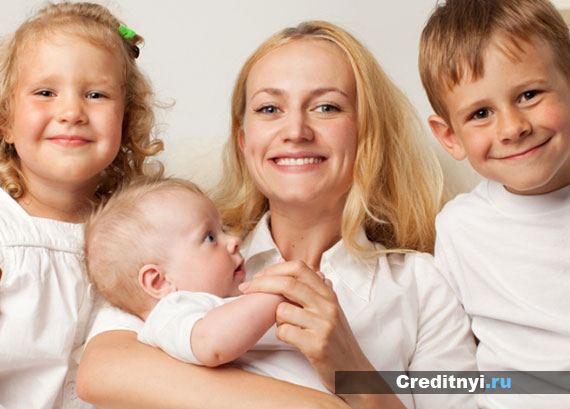
Also, such children have the right to priority service in clinics, to receive vouchers to kindergartens and health institutions (sanatoriums, camps, if indicated). Certain benefits are provided for the whole family:
- discount from 30% on payment for housing and communal services (plumbing, electricity, gas, sewerage, heating),
- simplified conditions for obtaining loans for the purpose of building or purchasing housing, in some cases - and free provision of residential real estate,
- receiving, out of turn, garden plots for the construction of an individual house (from 0.15 hectares per family),
- free travel on public transport and visiting the museum, etc. when accompanied by children.
If there are three or more children in a family, the list of privileges may change depending on what activities the parents are engaged in. When running a farm, financial assistance is provided for its development and preferential taxation. Entrepreneurs may be exempt (partially or completely) from paying the registration fee.
When finding employment, parents with many children have the right to count on flexible forms of work (part-time, etc.). It is also worth paying attention to what benefits are provided for mothers of three children if the family is full. They relate to early retirement - at 50 years old, provided that she has at least 15 years of insurance experience and has raised at least 5 children before the age of 8.
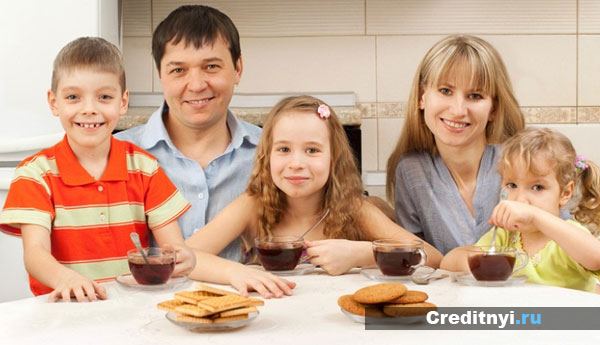
Women who have worked for 12 years in the Far North or 17 years in equivalent zones are in an even more privileged position. For early pension accrual, it is enough for them to have 2 children and a total period of insurance contributions of 20 years. Single mothers can count on assistance specifically intended for this category in full.
Labor benefits
Parents from large families are often forced to work hard to support their children. In order to somehow help and protect them, the Labor Code provides for the following preferences:
- assistance in finding employment - in employment centers they are first of all offered lucrative vacancies, often provided with part-time or remote work positions;
- additional leave - it is provided once a year in the presence of special family circumstances, can last up to 2 weeks, is agreed in advance with the management, but is not paid by the employer;
- additional day off - provided every week, but only to those parents with many children who work officially and whose working week is at least 40 hours (otherwise it will not be possible to get a day off);
- early retirement - this form of support is especially relevant in anticipation of an increase in the retirement age; mothers of many children will presumably have their retirement age reduced (will depend on length of service or age), but this benefit is provided only to mothers.
In case of downsizing and liquidation of a company without other indications, privileges for large families are not provided. The number of children does not affect the amount of wages.
Tax deductions for children cannot be considered a special privilege, since they are provided to parents regardless of the number of children. Their number only affects the size of the benefit.
Read: Regional maternity capital for a third child
What payments are due for a third child?
If a third child appears, benefits and payments largely depend on the region where the parents live. However, there are also mandatory payments.
Among them are:
- maternity benefits;
- payment for early consultation;
- monthly allowance for child care up to 1.5 years;
- “Putin” payments for the low-income category.
The B&R benefit is calculated from the mother’s average earnings (40% of the salary). It is not affected by the birth date of the baby.
When calculating benefits, the woman’s salary and the number of days she will be on maternity leave are taken into account (the period increases in case of multiple or complicated pregnancies).
The one-time payment at the birth of a baby is 17,479.73 rubles. From February 1, 2020 it will be indexed.
For the birth of a third child from 2020 to 2022, additional compensation in the amount of 450 thousand rubles is provided.
It can only be used to purchase housing or pay off a mortgage.
In the field of taxation, benefits are also provided for parents with many children. For the third child, a tax deduction of 3,000 rubles is provided.
To obtain it, you must contact the accounting department of the organization where each of the parents works (if they are not on maternity leave).
Large family mortgage 450 thousand rubles: latest news, documents.
